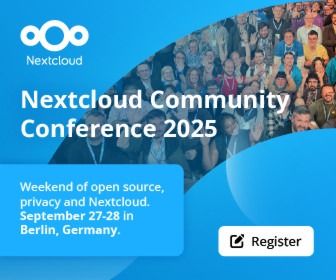In recent years, it has become common for the terms “open source” and “FOSS” to be used interchangeably. While it’s true that all FOSS is also open source, it’s also true that being open source doesn’t necessarily mean it’s FOSS.
In the early 21st century, practically anyone using GNU/Linux knew the difference between proprietary, open source, and free and open source software. In those days distinguishing between proprietary, freeware, shareware and truly free software was a piece of cake. This was in large part due to the fact that open source was a relatively new concept, with the term first receiving widespread use in 1998. There were other reasons as well, mostly having to do with the Linux users of the day.
Hardly anybody installed Linux without doing some research first, and very few installed Linux expecting it to look and act like Windows. Although Windows 95 had been out five or more years, most users making the leap to Linux were people who cut their teeth on the command line and who remembered when 640 KB was the absolute amount of RAM in an “IBM compatible,” an ancient name for the PC.
They also weren’t strangers to configuring their systems. Many users of the day could still remember installing “expanded memory” on MS-DOS machines to allow RAM to be increased above the 640 KB memory barrier to a full megabyte, “extended memory,” which allowed RAM to be extended beyond that newly established megabyte absolute, or DriveSpace to encrypt on-the-fly and nearly double the amount of data on the hard drives of the day that might be as small as 40 MB.
A majority of users could remember when home computers were rarely networked, with those that were by way of “walled garden” services such as CompuServe, Prodigy, America Online or private bulletin boards.
There were also many hoops in the process which kept casual users away from Linux, starting with the difficulty of getting a copy to install. By 2000, downloading small applications from the Internet was a common practice, but with most users still on dial-up, with a maximum 56 Kbps download speed, downloading something as large as an operating system could take days, and that’s if the download didn’t break. This meant paying full retail to purchase a shrink wrapped copy at a brick and mortar store — in 2002 a shrink wrapped copy of Mandrake’s PowerPack cost around $75 at Best Buy — or spend considerably less buying install CDs online through outfits like Cheap Bytes.
Also, hardly anyone had an uncle, aunt, brother, sister or friend who knew anything at all about Linux, so getting help with installation, the intricacies of disk partitioning and the like was out of the question — except online. It was in the various Linux forums where people could be found to explain each and every step of the installation, and hold new users’ hands as they made necessary changes to configuration files to get their systems up and operating.
Learning to edit configuration files the Linux way was an absolute necessity back then. Even user-friendly distros such as Mandrake, which allowed the user to make most configuration changes through the GUI, couldn’t do it all, meaning users were assured that occasionally they were going to have to go to a terminal, open a configuration file and make some changes using the command line. And troubleshooting in those days meant users were just as absolutely going to have to learn more about how their Linux system worked beyond mere point and click.
Along the way, users couldn’t help but learn about licensing and that Linux, and the software that came with it, were not only free in the sense that money didn’t necessarily change hands, but that they were free because the user actually owned the software and could modify it in any way necessary to suit his or her needs. It didn’t matter that many users were like me and didn’t have the skills nor the need to modify their software. The important thing was that the software was theirs to do with as they liked.
Which brings me back to my opening statement: As part of the process, most users learned to differentiate between software that was merely open source and open source software that came with an extra guarantee of freedom. In other words, they learned to distinguish between OSS and FOSS.
Flash forward fifteen years or so and it’s already a completely different world.
Many if not most new Linux users today don’t download and install Linux themselves, they have it done for them by a friend, coworker or relative. Also, many if not most new users don’t research their new operating system, either before or after installation. There’s no need. The installation is done for them, and after some cursory instructions they’re off to point and click into the wild blue yonder.
At some point they’re probably told by the friend or relative who set them up that Linux and the software that comes with it is “open source,” but with all the finer points of free software being glossed over. There’s no distinction made between software that is open source and software that is both free — as in speech or freedom — and open source.
To many, open source is open source is open source. It’s mainly just seen as software that can be installed for free without coming afoul of any intellectual property laws.
This is unfortunate, because it leaves the new Linux user thinking there’s no difference between OSS and FOSS, if they think about the matter at all. Even some tech journalists use the terms interchangeably, which only goes to reinforce the new user’s belief that open source is open source is open source.
This leaves no opportunity for that aha! moment, when a flash of insight brings about the realization that while all FOSS is OSS, not all OSS is FOSS. Along with that realization comes another aha! opportunity: the chance to realize the subtle nuances that allows an open source project to also qualify as FOSS. This is not to mention the paradox that software can be both free and not free, with even the GPL, perhaps the most free license on the planet, not being immune from this paradox. For an example of the later, look at the amount of GPL software being developed by black hats like Microsoft and Oracle for the sole purpose of driving users to their proprietary, and definitely not free — as in freedom nor as in beer — software.
It’s also unfortunate that the tendency to treat open source and free and open source as if they were the same has crept into the language used by free tech advocates as well. This often makes those who advocate for free tech seem like fanatics, especially to users who are too young to remember when the distinction between the two was clearly defined. When we say that traditional adversaries of free tech, such as Microsoft and Oracle, are not legitimate open source companies — when it’s obvious they are, as both contribute mountains of open source code which other open source companies happily use — we seem to be being merely unreasonable and argumentative. Open source does not require those who use or create it to be ethical, it only requires that they comply to the letter of the open source licenses being used.
Without a doubt, both Microsoft and Oracle are open source companies. What they are not, and probably can never become, are FOSS companies, because that requires a commitment to the concepts behind software freedom. There’s not a bone in either companies’ bodies — if corporations can be said to have bodies — that is in any way sympathetic to free tech. Even while obeying the open source precept to “share and share alike,” both companies are only concerned with expanding their bases of power and ownership of tech, and in Microsoft’s case at least, much of their open source software is designed solely for that purpose.
These are distinctions which need articulating, not only so we don’t seem like we’re never happy crybabies, but so that younger users of open source software can come to see the difference between FOSS, on the one hand, and OSS, on the other, and that while one is always the other, the other is not always the one.
Christine Hall has been a journalist since 1971. In 2001, she began writing a weekly consumer computer column and started covering Linux and FOSS in 2002 after making the switch to GNU/Linux. Follow her on Twitter: @BrideOfLinux












I am one of those old hacks that learned the distinct differences between OSs and FOSS. The one product that stood out as OSS was Informix, a database application for which the purchaser could receive the Source Code – for a separate fee, but was not allowed all the usage freedoms of FOSS.
Unfortunately many large companies, like Microsoft mis-used the terms to confuse the public and many naive and amateur technologists to think that most of their FOSS was really that, when in fact those products were not even OSS.
At this stage, the only true way to distinguish between OSS and FOSS is to compare a publicized FOSS application against the “Four Freedoms” as declared and articulated by the Free Software Foundation (fsf.org).
Anything else is a gimmick and ruse.
I’ve said that for a long time that not all OSS is FOSS
A correction:
Microsoft and Oracle don’t like to release software under the GPL. They prefer the Apache and BSD licenses because those don’t offer the freedom protections of the GPL and are easier to subvert for proprietary lock-in purposes.
In fact I don’t think Microsoft has ever released anything under the GPL. I could be wrong on that, but if they have, I’d bet it’s nothing substantive.
With Oracle, MySql is GPL, but already was before Oracle purchased it and tried to lock it up by making it “open core” (a term used by companies who try to pervert open source software into proprietary crap. Oracle apparently inherited a lot of the Sun engineers’ bitterness towards the GPL when they acquired Sun. Thus ZFS continues under the CDDL – a license created specifically to be incompatible with the GPL.
Neither Microsoft nor Oracle are FOSS companies. They do not deserve that honor. Even saying they are open source companies releasing “mountains” of open source code strains credulity. They are proprietary parasites and nothing more. The software world would be better off without either of them.
Just as I’m not completely and introvert but I sometimes show my extrovert side, I dabble in both FOSS and proprietary software–because my gut tells me that my personality requires both to function normally.
I don’t apologize for any of this, I’m just stating a reality of mine that I live in a conflicted world. That’s the only way I can survive.
There are no utopias in life and for computing nothing is perfect either. However, at the bottom of this, I can accept my conflicted choices because that’s life too. I eat cake even when my bathroom scale shows another number I’d rather not observe. The software I use is an extension of me.
My solution: give thanks for the wonderful parts of life that “sing” and try not to get too bent out of shape with the “not-so-great” stuff that just happens. Good software “lives” in dragon caves sometimes.
The comment from David Mawdsley apparently has nothing to do with the article topic or principles, especially the reality that many large proprietary companies deceitfully and sometimes illicitly offer proprietary software as true FOSS.
I and many millions of technologists use both FOSS and proprietary applications, regularly on occasion, but do not attempt to make some sort of spiritual message of the matter.
He needs to first, understand the issues being discussed, and secondly get a life that does not tie technology use to his emotional ethereal existence.
Open Source is defined as FOSS:
http://opensource.org/osd
If it isn’t FOSS, it isn’t OSS.
@someone
A problem is open source is used for things not matching OSI’s definition.
For example, Microsoft recently released the source for some early versions of DOS. It is under a very restrictive and non-free license (essentially you can’t use it for anything), despite being described as open source https://redmondmag.com/articles/2014/03/25/ms-releases-open-code.aspx
There are numerous other examples. Beyond that you can get into the finer points of open source abused by corporations, such as “open core” attempts to freeload on the FOSS community, and “contributor agreements” which steal copyright away from the rightful developers.
An even finer distinction can be made between FOSS and OSS with respect to user freedoms, i.e. copyleft or so-called “permissive” licenses.
There’s a whole spectrum of FOSS to OSS out there, and a lot of open-washing being done by companies that only want to be seen as contributing to FOSS while remaining parasitical.
@someone:
I may be wrong here and thus I ask to be corrected, but AFAIK open source licenses like BSD allow for derivatives to be modified/created and distributed under a new, more restrictive license (e.g. a proprietary one). Therein lies the difference, as already discussed, of the rejection by corporations of the GPL, which does not allow a “hostile takeover” of a software.
Thus a BSD-style license is not FOSS, but it is OSS.
Also, there’s no paradox in being free and not being free at the same time.
This is a quirk in English (my language has it, too, regarding other concepts). It all would be solved if free was to be replaced by free1 (meaning “without price/cost”) and free2 (meaning “unencumbered”). These are really different ideas, and we mix them only because of form – because of the word used to designate both. Our brains really malfunction upon encountering it — and the confusion even extends into other languages, when one uses the expression “Free Software” instead of the more local “Software Libre” (for instance).
Finally, Christine already touches the subject at the end of her article, but let me say “open source” is more than just the source code: IMHO it’s an entire attitude and Ethics towards sharing knowledge and even tools. A company cannot be “open source” while rejecting standards like Opendocument or when using patents to stifle the competition.